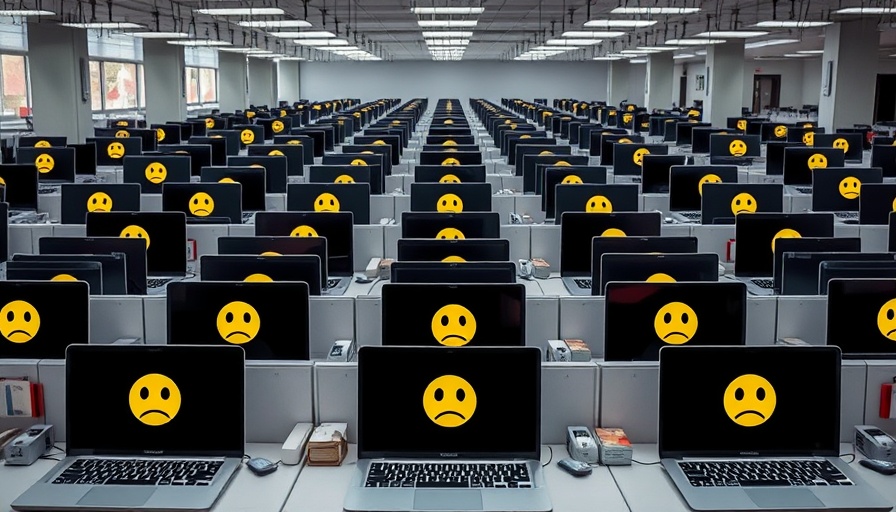
Tackling Mental Health in Construction: A Groundbreaking Approach
The construction industry has long overlooked the mental health of workers, particularly among Latino communities in areas like Fresno. However, at Panos Concrete, a local company, co-founder Karina Pano is making waves by changing the narrative around mental well-being in this challenging field. Since her introduction to the family-owned business in 2022, Pano has integrated mental health support into everyday operations.
The Need for Change: Understanding Worker Challenges
Construction work is inherently stressful, with job stability fluctuating wildly. Many workers face anxiety over job security, especially in the current market climate. According to Pano, some construction workers reach out weekly, desperately searching for employment as the industry experiences shifts. This uncertainty creates a breeding ground for stress and even substance abuse, as workers often seek unhealthy coping mechanisms. It showcases an alarming truth; the hardships faced by workers resonate far beyond physical labor.
A Unique Approach: Tailoring Resources for a Diverse Workforce
Recognizing the barriers in mental health access, Pano created a resource document specifically designed for Latino construction workers. This invaluable tool includes Spanish translations of mental health terms, symptoms, and available local support services. By catering to language needs and stigmas, Pano has opened up avenues for communication about mental health that many workers may not have felt comfortable exploring before. “As a business owner, I understand that my workers might not share their struggles with me directly,” she noted. Empowering workers through information is a vital step toward changing the culture surrounding mental health in the area.
Innovative Solutions: Technology Meets Mental Wellness
Pano is not stopping at informational resources; she is also pioneering technology to further support construction workers’ mental health. She is currently developing a mental health app designed to integrate physical activity with relaxation techniques. The app, in partnership with a kinesiology student from Fresno State, will offer guided exercises to help workers wind down after a physically demanding workday. For Pano, such innovations are crucial: "It’s important to know how to relax your body after work," she emphasized. This holistic approach is set to make a significant impact.
Creating a Community of Support
Beyond individual resources, Pano has initiated wellness events tailored for workers in the sector. These gatherings aim to foster community bonds while promoting mental health awareness and resources available. By bringing workers together, she hopes to normalize discussions around mental health, thus erasing the stigma that clouds it. Pano’s approach signals a shift in construction culture—one where mental well-being is prioritized and openly discussed.
The Bigger Picture: Challenging Industry Norms
Pano's endeavors represent a growing movement within the construction industry, challenging long-standing norms and advocating for better support systems for workers. As societal awareness of mental health issues rises, initiatives like Pano’s highlight the need for change not just locally, but across industries. While the road ahead remains fraught with challenges, her efforts showcase the profound impact one business can have on community health.
Conclusion: Embracing a Healthier Work Environment
As we continue to delve into the importance of mental health at work, it is imperative to follow the lead of trailblazers like Karina Pano. By prioritizing mental health, promoting open discussions, and creating helpful resources, Panos Concrete sets a significant example for others in the industry. Those working in demanding fields like construction deserve support that addresses all aspects of their health, and Panos Concrete is at the forefront of fostering that change.
Take a moment to reflect on how you can advocate for mental health in your own work environment. By sharing your experiences and insights, you can play a vital role in creating a healthier workplace culture for everyone.
 Add Row
Add Row  Add
Add 




Write A Comment